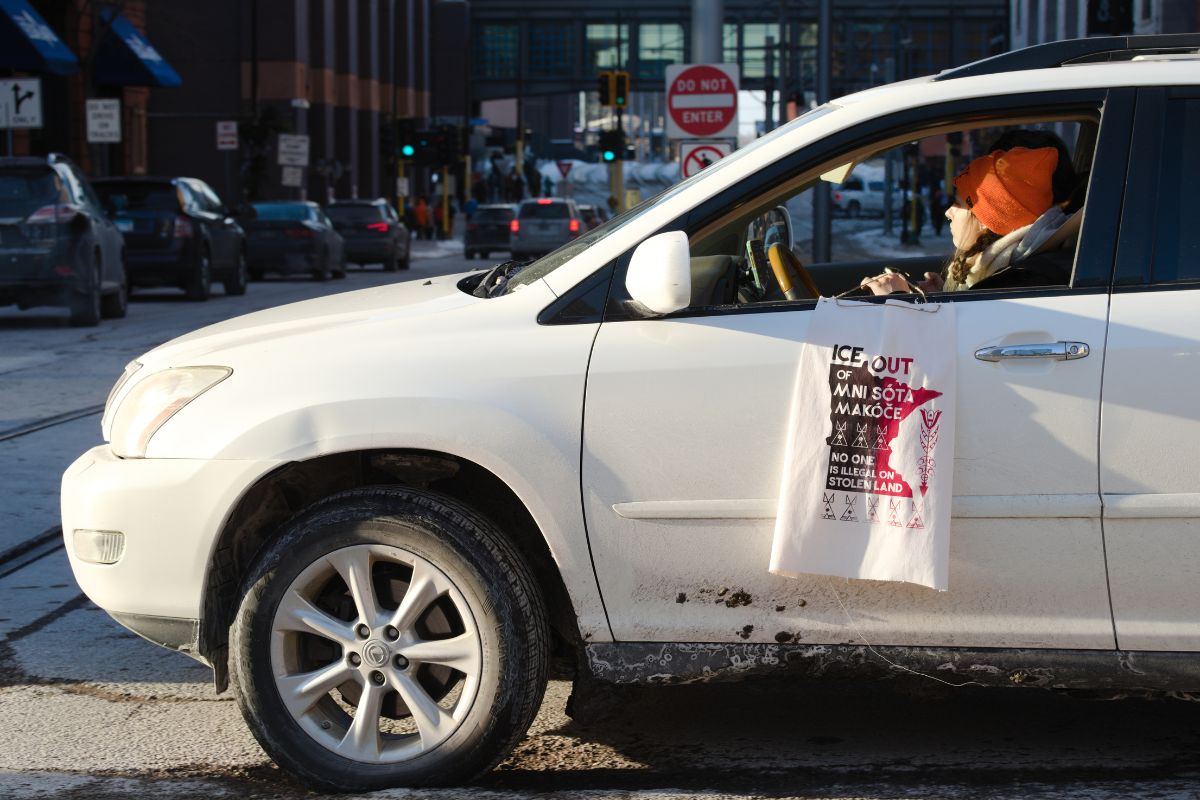
Last week, US Senator Elizabeth Warren (D-MA), along with seven Senate cosponsors, introduced the Ultra-Millionaire Tax Act of 2021. The bill aims to turn national policy in a new direction, one that will no longer allow a favored few to prosper while leaving most Americans falling farther and farther behind. A parallel measure, sponsored by Representatives Pramila Jayapal (D-WA) and Brendan Boyle (D-PA), has been introduced in the US House of Representatives.
If passed, the proposal promises to “level the playing field and narrow the racial wealth gap by asking the wealthiest 100,000 households in America, or the top 0.05 percent, to pay their fair share.” Warren says the bill would raise more than $3 trillion over 10 years. According to Grace Dean of Business Insider, had this tax been in effect in 2020, Jeff Bezos would have paid the federal government $5.7 billion, Elon Musk $4.6 billion, Bill Gates $3.6 billion, and Mark Zuckerberg $3 billion.
Inequality.org, a project of the Institute for Policy Studies (IPS), describes the nation’s history of wealth inequality:
Over the past century, the National Bureau of Economic Research has found that the share of America’s wealth held by the nation’s wealthiest has changed markedly. That share peaked in the late 1920s, right before the Great Depression, then fell by more than half over the next three decades. But the equalizing trends of the mid-20th century have now been almost completely undone. At the top of the American economic summit, the richest of the nation’s rich now hold as large a wealth share as they did in the 1920s.
The Federal Reserve has underlined the severe racial imbalances within this overall picture. According to data from the Fed’s 2019 Survey of Consumer Finance, “White families have the highest level of both median and mean family wealth: $188,200 and $983,400…Black and [Latinx] families have considerably less wealth than White families. Black families’ median and mean wealth is less than 15 percent that of White families, at $24,100 and $142,500, respectively. [Latinx] families’ median and mean wealth is $36,100 and $165,500, respectively.”
The economic body blow delivered by COVID-19 illustrates dramatically how pernicious this situation is. While those without wealth have lacked the financial resources to protect themselves and struggle to keep roofs over their heads and food on their tables, the richest Americans have prospered. According to one study conducted by Americans for Tax Fairness and IPS, since the pandemic began, “The country’s 664 billionaires now have combined wealth of $4.3 trillion, up from just under $3 trillion….At $4.2 trillion, the total wealth of America’s 664 billionaires is also more than two-thirds higher than the $2.4 trillion in total wealth held by the bottom half of the population, 165 million Americans.”
The proposed wealth tax emerges from an understanding that current tax policies have become anything but progressive. As the analysis of University of California at Berkeley economists Emmanuel Zucman and Gabriel Saez has shown, “The US tax system looks like a giant flat tax with similar tax rates across income groups but with lower tax rates for billionaires.”
Sign up for our free newsletters
Subscribe to NPQ's newsletters to have our top stories delivered directly to your inbox.
By signing up, you agree to our privacy policy and terms of use, and to receive messages from NPQ and our partners.
In proposing to tax the accumulated wealth of the richest Americans, Warren recognizes that decades-old policies built around the belief that prosperity will “trickle down” for the benefit of all Americans, have failed. As Zucman wrote to Jim Tankersley of the New York Times, “The disconnect between wealth growth for the ultrawealthy and wealth growth for most Americans is not a new phenomenon: Billionaire wealth has been growing faster than the economy for the last 40 years.” Notably, the wealth of the nation’s 400 wealthiest Americans has increased from less than five percent of national income in the 1980s to over 20 percent of national income today.
The bill’s approach toward reversing these trends is simple. It would create a “two percent annual tax on the net worth of households and trusts between $50 million and $1 billion and an additional one percent annual surtax (three percent tax overall) on the net worth of households and trusts above $1 billion.”
The bill also acknowledges that wealth taxes are harder to collect than income taxes. To counteract that, the bill includes a number of safeguards:
- a 10-year, $100 billion investment to rebuild and strengthen IRS auditing capacity
- a 30 percent minimum audit rate for taxpayers subject to the tax
- a 40 percent “exit tax” on the net worth above $50 million of any US citizen who renounces their citizenship
- new tools to determine the value of hard-to-value assets
- systematic third-party reporting measures
The idea of taxing wealth has popular support. A Reuters/Ipsos poll conducted last year found “nearly two-thirds of respondents agree that the very rich should pay more.”
Among the 4,441 poll respondents, 64 percent strongly or somewhat agreed that “the very rich should contribute an extra share of their total wealth each year to support public programs”—the essence of a wealth tax. Results were similar across gender, race, and household income.
In a press release, Warren emphasizes that the wealth tax should be a high priority “because of the huge amounts of revenue it would generate,” which could help support initiatives in “childcare, early education, K-12, and infrastructure.” Darrick Hamilton, founding director of the Institute on Race and Political Economy at The New School, raises broader concerns. Hamilton observes, “Massive economic inequality is incompatible with democracy and human flourishing. An Ultra-Millionaire Tax would rein in plutocracy and promote economic opportunity and mobility for everyone.” He continues, “It’s time for transformative policies to address the massive concentration of wealth at the top and the long legacy of racial injustice in our country, and the Ultra-Millionaire Tax is a critical step forward on both.”
Even some who would be asked to pay it demonstrate broad support for a wealth tax. In 2019, a group of wealthy men and women, in an open letter to the presidential candidates, wrote, “It is our duty to step up and support a wealth tax that taxes us. It is a key to both addressing our climate crisis, and a more competitive, stronger economy that would better serve millions of Americans. It would make America healthier. It is a fair way of creating opportunity. And it strengthens American freedom and democracy.”—Martin Levine












